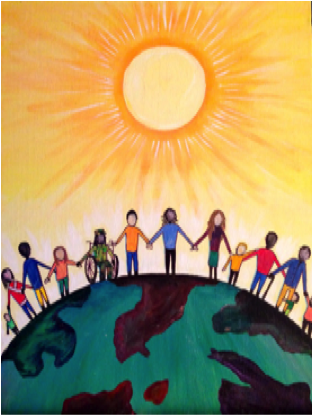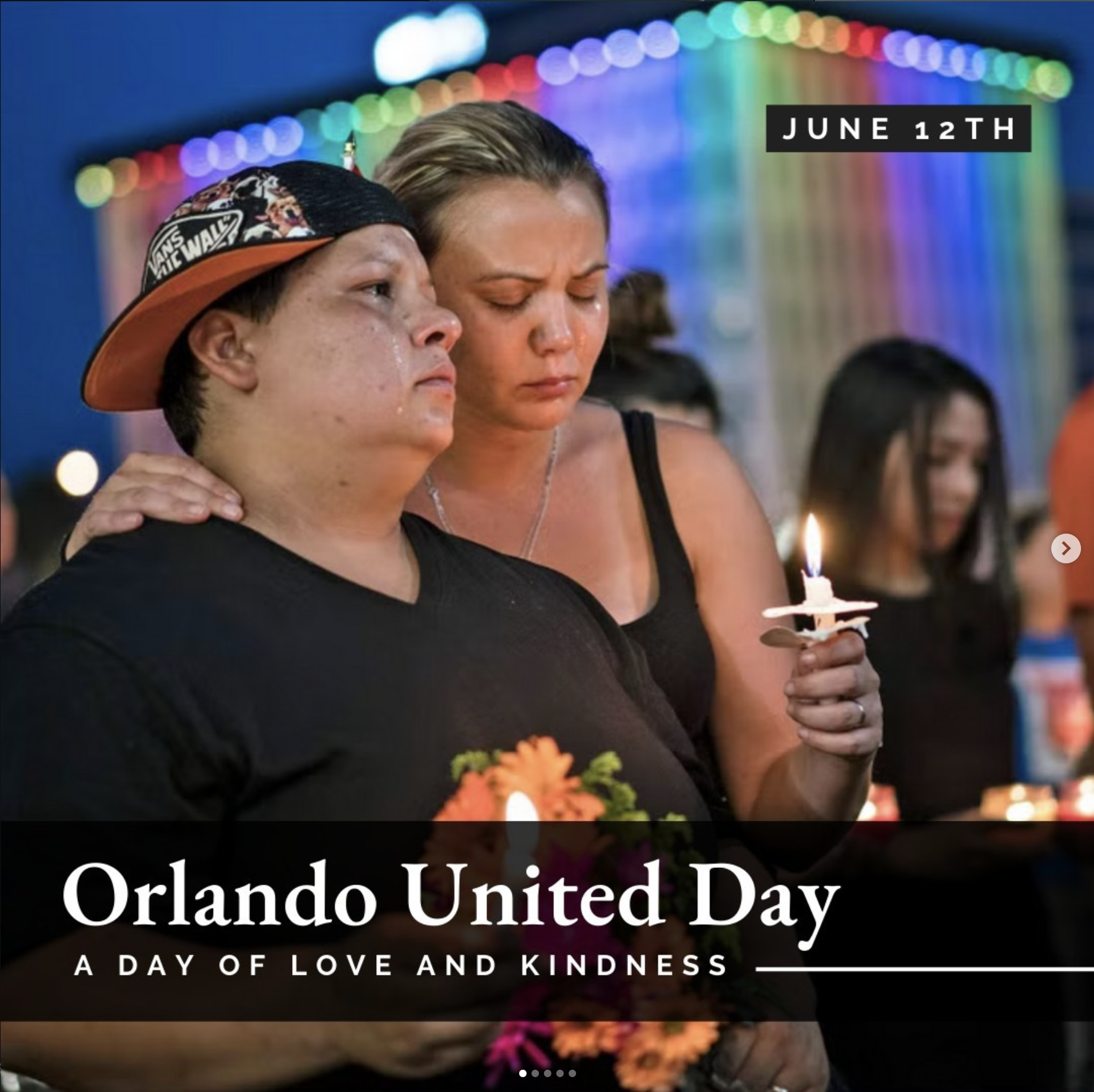TRI’s History of Disaster Response
Disaster Relief Mobilization – Community Resiliency Model (DRM-CRM®)
“DRM is in our DNA. It is what TRI has done from the very beginning.” - Elaine Miller-Karas
For the Trauma Resource Institute, responding to disasters around the world has never been simply about providing skills — it has been about bearing witness to the profound strength of the human spirit. In the ashes of fires, in the rubble of earthquakes, in the quiet grief after violence or war, we have seen people reach for one another with courage, tenderness, and hope.
Each community has taught us that even in the darkest moments, there are sparks of resilience waiting to be rekindled. To walk alongside survivors — to listen to their stories, to offer simple tools that help steady a trembling body or calm a racing heart, to watch dignity and connection re-emerge — has been a sacred responsibility.
The deep meaning of our work lies in this: that healing is possible, that communities can rise again, and that when we share compassionate, biologically based practices, we become part of a global fabric of people helping people find their way back to themselves and to one another.
Overview
For close to twenty years, the Trauma Resource Institute (TRI) has partnered with communities facing some of the world’s most challenging disasters—wildfires, hurricanes, typhoons, earthquakes, civil unrest, genocide, and mass violence.
Through the Community Resiliency Model (CRM)® and Disaster Relief Mobilization–Community Resiliency Model (DRM-CRM)®, TRI equips survivors, responders, and community leaders with practical, body-based skills that help stabilize the nervous system, reduce distress, and foster collective healing.
Today, TRI’s disaster response work spans 50 U.S. states and multiple regions across Africa, Asia, Europe, and the Americas.
Our Approach: DRM-CRM in Disaster Settings
DRM-CRM is a community-centered, public-health approach to disaster response that:
Teaches simple, biologically based skills for self- and co-regulation
Can be learned and shared by both professionals and community members
Integrates easily into schools, health systems, faith communities, and local organizations
Supports healing before, during, and after a disaster, not just in the immediate aftermath
TRI focuses on building local capacity by training CRM Teachers and Guides who continue the work long after the initial crisis has passed.
Wildfires & Climate-Related Disasters
LA City Parks Wildfire Wellness Connection Event, 2025
Los Angeles, Lahaina, Paradise & Beyond
TRI has supported communities following major wildfires in California and Hawai‘i, including the Los Angeles, Lahaina, and Paradise fires.
Following the 2025 Los Angeles wildfires, TRI provided pro bono online and in-person workshops, support groups, and outreach events for more than 3,500 fire-impacted Angelenos—including teachers, counselors, students, recreation staff, nurses, community health workers, and librarians, many of whom had been displaced.
TRI adapted DRM-CRM into accessible one- to three-hour workshops for schools, families, and community partners across more than 30 local organizations.
Ongoing partnerships with county departments, hospitals, and community agencies continue to strengthen the networks that support long-term fire recovery and resilience.
Across climate-related disasters, TRI’s programs focus on restoring a sense of safety, connection, and shared language for healing.
Earthquakes
Haiti, Nepal, Mexico & China
TRI has responded to major earthquakes and their long-term impacts in several countries:
Sichuan Province, China (2008-2010) The earthquake struck on May 12, 2008, with a magnitude of 7.9 (Mw). Its epicenter was near Wenchuan County in Sichuan Province. It was one of the deadliest earthquakes in modern Chinese history, causing nearly 70,000 deaths, 18,000 missing, and over 374,000 injuries. More than 5 million people were left homeless. TRI’s first international disaster response was a project sponsored by the World Health Organization and other Chinese charities. This was a project in collaboration with the Foundation of Human Enrichment. TRI brought their Trauma Resiliency Model Training to hundreds of survivors of the earthquake. TRI worked in hospitals, resettlement communities, law enforcement agencies, and with school staff, presenting biology-based skills.
Haiti (2010–present): After the devastating 7.0 earthquake, TRI trained local leaders in CRM and has continued to offer monthly pro bono online support meetings through 2024–2025. TRI worked with the Peasant Movement of the Central Plateau and in Port-au-Prince. Haitian CRM Teachers describe the skills as a way to “shift perspective and help others see that hope is possible.”
Nepal (2015–2016): Following the Gorkha earthquake, TRI trained 92 community members from diverse organizations in Kathmandu, including Tibetan nuns who had been displaced from their monastery by the earthquake. Participants reported greater self-confidence, improved ability to return to their “resilient zone,” and a strong desire to share CRM across Nepal.
Mexico (2017–2018): After the 7.1 Mexico City earthquake, TRI mobilized a team of Spanish-speaking CRM teachers and conducted a 5-day CRM Teacher Training for local professionals and community leaders responding to widespread loss and disruption in Mexico City.
Hurricanes & Typhoons
Southeastern United States & the Philippines
TRI’s hurricane and typhoon response has focused on both immediate stabilization and long-term systems change.
Hurricanes Helene & Milton (2024): In the southeastern U.S., TRI co-created the Hurricane Support Network, offering a pro bono DRM-CRM webinar and ongoing support meetings for CRM Teachers in affected regions.
Through strong relationships in North Carolina, TRI partnered with Blue Cross Blue Shield of North Carolina to expand workshops to 911 operators, school-based mental health therapists, librarians, justice services staff, nurses, and other healthcare workers.
Hurricane Florence (2018): In New Hanover County, North Carolina, CRM became a foundation for a countywide “Culture of Resiliency.” The county later received a National Association of Counties Achievement Award for this work.
Typhoon Haiyan (Philippines): Between 2014–2016, TRI trained about 75 CRM Teachers and supported the launch of Phil ACTS, a local NGO created by CRM teachers to bring resiliency skills across the Philippines. Additional training in Cebu City deepened this network. TRI staff led the newly trained CRM teachers into devastated regions of the Philippines and provided workshops for hundreds of survivors, including school staff and children.
Mass Violence & Terrorist Attacks
TRI has designed and delivered resiliency-focused interventions following mass shootings and bombings, including:
Boston Marathon Bombing
Pulse Nightclub Attack (Florida)
Dayton, Ohio mass shooting
San Bernardino terrorist attack
Route 91 Harvest Festival mass shooting (Las Vegas)
Covenant School shooting (Nashville, Tennessee)
In 2024, in partnership with CRM Teachers at Vanderbilt University, TRI offered CRM workshops to parents affected by the Covenant School shooting. Internationally, TRI has also supported communities in Northern Ireland coping with the long-term impacts of The Troubles.
Civil Unrest, Genocide & Political Violence
Rwanda, Ivory Coast, Northern Ireland and the DRC
TRI partners with local organizations in regions grappling with the legacies of civil conflict and genocide:
Rwanda: In collaboration with the Rwandan Resource and Grounding Organization (RRGO), TRI supported CRM “booster sessions” for 150 survivors and perpetrators ahead of the 30th commemoration of the 1994 genocide. RRGO continues to conduct and present research showing CRM’s effectiveness in reducing trauma symptoms.
Ivory Coast: CRM skills were taught in villages affected by war and genocide, where community members reported increased compassion and improved relationships between people who had previously been on opposing sides of the conflict.
DRC: TRI is in the process of completing a CRM Teacher Training in the DRC with community members working with community violence and the conflict with Rwanda.
Northern Ireland & the ICRIR: TRI first trained staff of the Victims and Survivors Service and the Forum for Cities in Transition in 2017 and has since returned for multiple CRM Teacher Trainings.
In 2024, the Independent Commission for Reconciliation and Information Recovery (ICRIR) engaged TRI to provide CRM-based trainings for investigative staff, integrating trauma-informed, resiliency-focused practices into their work with individuals seeking investigations. TRI also developed a specialized “Conversational CRM” workshop for law enforcement professionals
Ukraine
When the full-scale Russian invasion began in February 2022, TRI and its Ukrainian partners moved into action within 24 hours.
Together with EdCamp Ukraine, TRI launched a series of CRM webinars, translated into Ukrainian and streamed on Facebook Live, reaching nearly 80,000 viewers in just 50 days.
Since September 2022, TRI has conducted four CRM Teacher Trainings in Ukraine (2022–2025), certifying 100+ CRM Teachers who now serve as local leaders in their communities.
In June 2025, TRI provided in-person Trauma Resiliency Model (TRM) training for Ukrainian therapists in Carlingford, Ireland, followed by ongoing consultation as they apply TRM with clients inside Ukraine.
TRI continues to work with Ukrainian CRM teachers and a subcommittee of veterans and therapists to tailor CRM and TRM programs specifically for active duty military and veterans.
This is an ongoing, multi-year partnership grounded in mutual learning, shared leadership, and deep commitment to community-based healing.
Our Ongoing Commitment
Across all these contexts—fires, earthquakes, hurricanes, typhoons, mass shootings, civil unrest, and war—TRI’s focus remains the same:
Build local capacity through CRM and DRM-CRM
Offer practical, body-based skills that anyone can learn and share
Strengthen connection, compassion, and resilience in the face of overwhelming events
Interested in bringing DRM-CRM to your community?
We welcome partnerships with community groups, health systems, schools, faith organizations, and funders who share a commitment to trauma-informed, resilience-focused disaster response.




